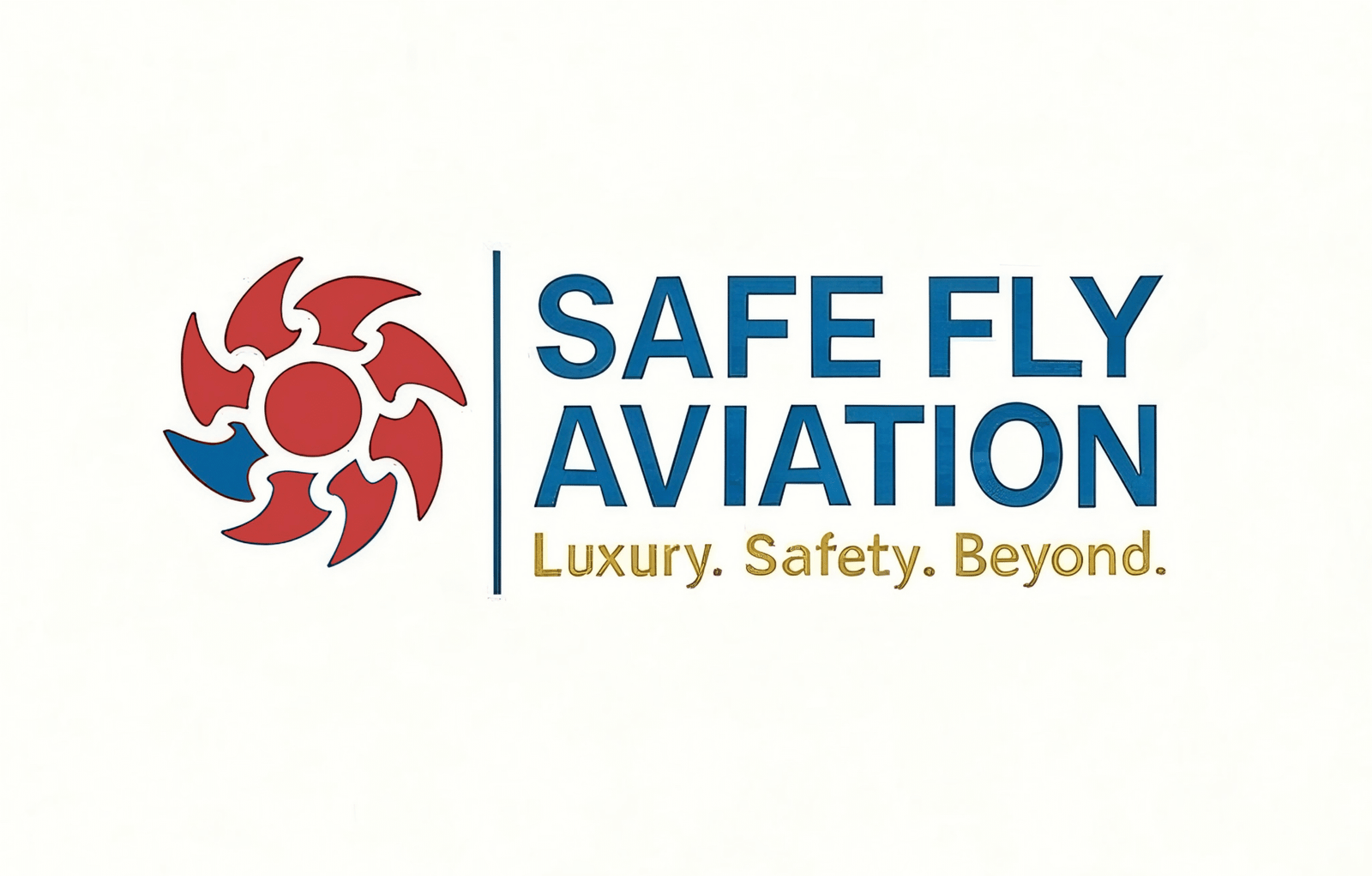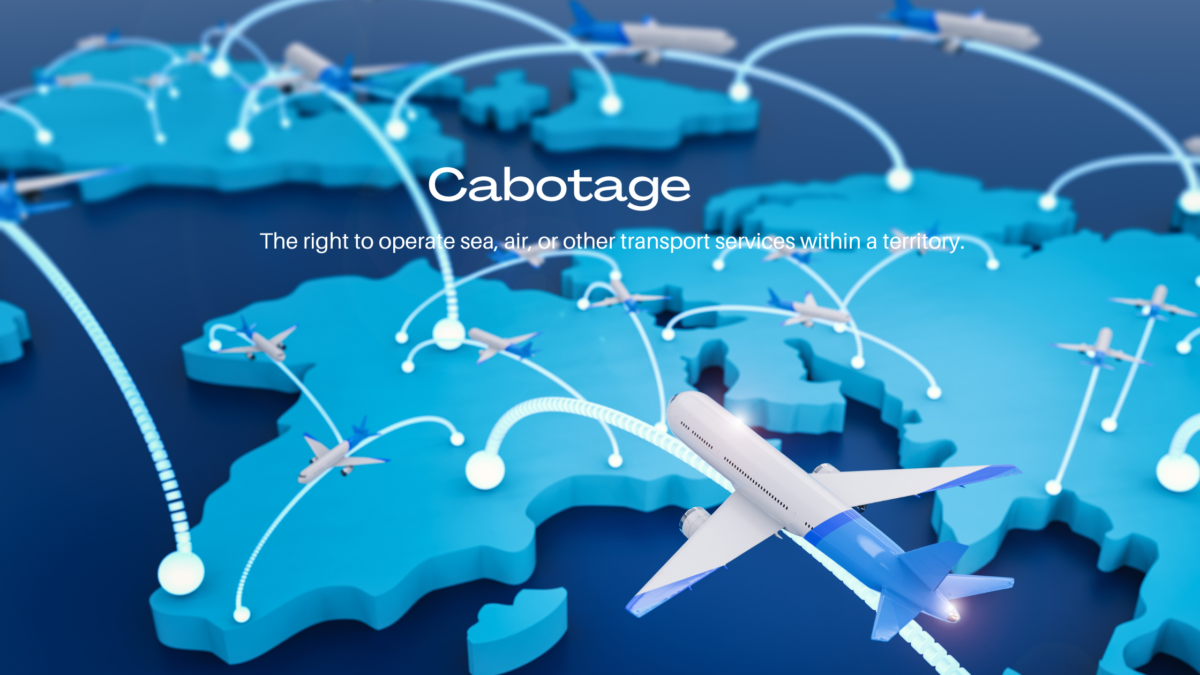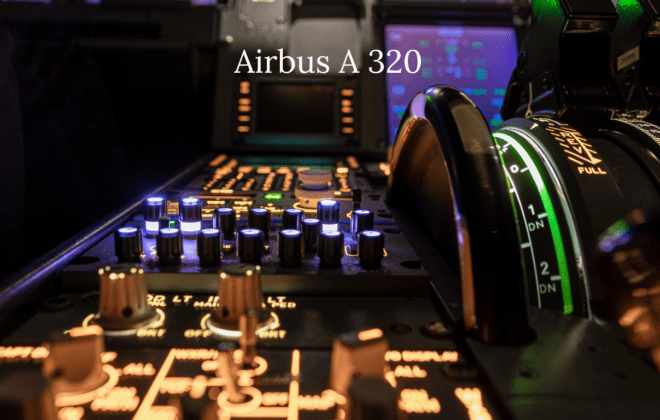The Cabotage Rules In Private Aviation World
The cabotage rules for the civil aviation world
Cabotage is the transportation of goods or passengers between two points within a country by a carrier of a different country. In civil aviation, cabotage rules refer to the regulations governing the operation of foreign airlines within a country. The cabotage rules for civil aviation vary from country to country; in India, the rules are framed by the Directorate General of Civil Aviation (DGCA).
The cabotage rules in India are designed to protect domestic carriers and promote the growth of the Indian aviation industry. As per the rules, only Indian-registered airlines can operate domestic passenger and cargo services within the country. However, there are some exceptions to these rules, such as:
Foreign airlines can operate to and from India but cannot perform domestic services.
Foreign airlines can operate chartered flights within India, but only for non-scheduled services, such as air ambulance, air charter, and air taxi services.
Foreign airlines can operate cargo flights within India, but only for cargo services, such as importing and exporting goods.
Foreign airlines can operate flights within India under the Indian Government’s ‘Open Skies’ policy, which allows airlines to operate flights between any two cities in India, subject to specific terms and conditions.
These cabotage rules are intended to protect the domestic aviation industry and the interests of Indian airlines while ensuring that the Indian public has access to good air services. The rules are subject to change and review based on the Indian Government’s policy.
Who sets the Cabotage rules?
The cabotage rules are set and enforced by each country’s Government, and the specific agency responsible for this varies depending on the country. In India, the Directorate General of Civil Aviation (DGCA) is the signatory for the cabotage rules. They are responsible for enforcing the laws and ensuring that domestic carriers are protected, and the Indian aviation industry is promoted.
The DGCA also works closely with other government agencies and organizations, such as the Ministry of Civil Aviation and the Airports Authority of India, to develop and implement policies related to civil aviation in India.
The DGCA also works with the International Civil Aviation Organization (ICAO) and other international aviation organizations to ensure that India’s cabotage rules are consistent with international standards and regulations.
The cabotage rules are subject to change and review based on the Indian Government’s policy. The DGCA is responsible for updating and publishing the rules to reflect changes.
It is important to note that, as a signatory of the cabotage rule, the DGCA may also issue exemptions or waivers to the cabotage rules under certain circumstances, such as when it is deemed to be in the public interest or when there is a shortage of domestic capacity.
ICAO and Cabotage rules worldwide and how it is implemented
The International Civil Aviation Organization (ICAO) is a specialized agency of the United Nations responsible for coordinating and regulating international air transportation. While ICAO sets standards and recommended practices for international air transportation, it needs the authority to regulate or enforce cabotage rules specific to individual countries.
Cabotage rules are implemented and enforced by the governments of each country. These rules vary from country to country and are intended to protect the domestic aviation industry and the interests of domestic airlines.
Cabotage regulations are governed by each country’s bilateral air service agreements with other countries. These agreements specify each country’s airlines’ rights and obligations concerning air services between the two countries, including cabotage rights.
However, ICAO does guide cabotage rules through its policies and standards. For example, ICAO’s Chicago Convention, which sets out the rules for international air transportation, states that each country has the right to regulate air transportation and protect its interests.
Additionally, ICAO’s policies and standards promote fair competition and open markets, which are consistent with the principles of Cabotage, but countries are free to make regulations and laws.
In summary, while ICAO does not regulate or enforce cabotage rules, it provides guidance and sets standards that support the principles of Cabotage and fair competition in international air transportation. Each country has the right to implement and enforce cabotage rules that protect its domestic aviation industry.
In addition to providing guidance and setting standards, ICAO works with member countries to promote cooperation and coordination on cabotage issues. For example, ICAO provides a forum for governments to discuss and negotiate cabotage issues through its Committee on Air Transport, which comprises representatives from member countries. This committee allows countries to share information, discuss best practices, and negotiate agreements on cabotage issues.
It’s also worth noting that cabotage rules are subject to change based on the policies of each country, and a government may choose to relax or change its cabotage rules in response to changes in the global economic and political environment.
It’s also important to note that cabotage rules are not only limited to civil aviation but also apply to other transportation fields, such as maritime, rail, and road transportation, with each area having its regulations.
In conclusion, the cabotage rules are implemented by the governments of each country and enforced by their respective regulatory bodies. While ICAO does not regulate or enforce cabotage rules, it provides guidance. It sets standards to promote fair competition and cooperation among member countries and provides a forum for governments to discuss and negotiate cabotage issues.
Countries that have strict Cabotage rules.
Several countries have strict cabotage rules to protect their domestic aviation industry. Some examples include:
United States: The U.S. has strict cabotage rules known as the Jones Act, which requires that all cargo transported by water between U.S. ports must be carried on vessels that are built, owned, and operated by U.S. citizens.
Canada: Canada has strict cabotage rules prohibiting foreign airlines from carrying passengers or cargo between two points within Canada, known as “domestic air services.”
Brazil: Brazil has strict cabotage rules prohibiting foreign airlines from operating domestic flights.
Australia: Australia has strict cabotage rules that require all domestic air services to be operated by Australian-registered aircraft and crew.
India: India also has strict cabotage rules prohibiting foreign airlines from operating domestic flights.
Japan: Japan has strict cabotage rules prohibiting foreign airlines from operating domestic flights.
Russia: Russia also has strict cabotage rules that prohibit foreign airlines from operating domestic flights within the country
It’s important to note that these regulations are subject to change and review based on the Government’s policy; in some cases, exemptions or waivers to the cabotage rules may be granted under certain circumstances.
Safe Fly Aviation Services Pvt Ltd is a leading air charter service provider in India and worldwide for all your air charter needs, please get in touch, and we shall be able to find a suitable aircraft and helicopter for your requirement.
Written By: Team Safe Fly Aviation.
Top of Form
Related Posts
Categories
Recent Posts
- 100 Years of Pratt & Whitney: Powering the Skies with Innovation
- Boeing 787 Dreamliner: A Comprehensive Guide to Its History from 2004 to 2025
- Why is Jetstar Asia Closing: Reasons, Fleet, Routes, and Impact on East Asian Aviation
- Africa’s Cargo Charter Market: Growth, Trends, and Opportunities in 2025 and beyond
- Navigating the Latest UK Customs and Immigration Requirements for Air Charter Travelers in 2025




